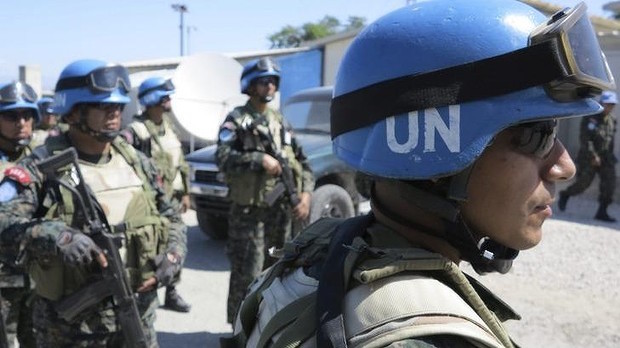
Trouble in Haiti: Scene from Disaster Capitalism. Photo: Antony Loewenstein.
Source: Garry Maddox, Sydney Morning Herald, April 5, 2016
Australian feature films have largely avoided hot political subjects lately – though that may change with Matthew Saville's planned film on the Tampa crisis – but documentary makers have been far from reluctant.
Well-known journalist Antony Loewenstein has written and appears in Disaster Capitalism, about the "the dark side of moneymakers and aid exploiters" in Afghanistan, Haiti and Papua New Guinea, which has been selected for North America's largest documentary festival, Toronto's Hot Docs, which starts later this month.
And after four years working on the film with director Thor Neureiter, Loewenstein concludes that the amount of Australia's foreign aid that is wasted is "huge".
"The vast majority of aid that Australia has given to PNG in the last years, especially in Bougainville, has gone to waste," he says.
"That's not to say there's not been valuable projects. I've seen with my own eyes in Bougainville certain medical facilities and support networks that have helped people.
"But so much of the aid in PNG has gone into corruption ... too often Australian aid is tied to pushing corporate mining interests."
Although the country's involvement with Haiti has been limited, Loewenstein says the vast majority of aid to Afghanistan "was funnelled through the corrupt Afghan government and also warlords that the Australian government partner with." He sees that as "a huge problem".
Disaster Capitalism, which is "90 per cent shot", will feature in Hot Docs Forum, which gives the filmmakers 15 minutes to pitch to financiers, producers, distributors, sales agents and broadcasters from around the world.
Speaking from East Jerusalem, Loewenstein tells Short Cuts the aim of the film is to make viewers more aware of where their aid money is going.
"It's not a call to stop aid," he says. "It's to make it smarter aid, more targeted and more engaged aid with locals on the ground.
"As we've seen in Haiti, Afghanistan and Papua New Guinea, aid is not actually helping the people it claims to be helping."
Loewenstein says Disaster Capitalism has been a tough film to shoot.
"In all three countries logistics are tough," he says. "Security, particularly Afghanistan, is incredibly shady."
- ACTNOW's blog
- Log in to post comments
